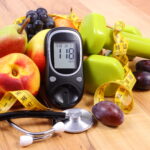Heart disease is one of the leading causes of death globally, and prompt medical attention during a cardiac heart event can be life-saving. One of the most critical elements in managing this condition is understanding the early warning signs. A heart attack usually doesn’t appear out of nowhere. It often presents with symptoms that, when recognized early, can significantly improve outcomes and reduce the risk of long-term complications. Many people miss critical warning signs in the early stages. Learning to spot these symptoms could save a life, including your own.

What Causes a Heart Attack?
A heart attack, medically known as myocardial infarction, occurs when the blood flow to part of the heart muscle is severely reduced or blocked. This heart blockage is often due to a buildup of fat, cholesterol, and other substances together, forming a plaque in the arteries. When the plaque ruptures, a blood clot can form, blocking the flow of blood to the heart muscle.
The longer the heart muscle is deprived of oxygen, the greater the potential damage.
The Most Common Signs of a Heart Attack
- Chest pain or pressure
Often described as a squeezing, tightness, or aching in the middle of the chest, this discomfort can come and go. It’s one of the most reported symptoms by those experiencing a heart attack. - Pain radiating beyond the chest
Discomfort may spread to the left arm, neck, back, shoulders, or jaw. Some people confuse these symptoms with muscle problems or other unrelated conditions. Any unexplained pain in these areas should be taken seriously. - Shortness of breath
This symptom may appear with or without chest pain and can occur during activity or while at rest. It’s especially important not to ignore this symptom, as it’s a strong indicator of potential heart issues. - Nausea, lightheadedness, or cold sweat
These symptoms may mimic those of other conditions, but when paired with chest pain or fatigue, they should never be ignored. - Unusual fatigue
A sudden drop in energy or chronic tiredness could be the result of decreased blood flow to the heart. If you notice persistent fatigue following minor exertion, speak with a heart specialist. - Sweating
Breaking into a cold sweat when still or while lying down can signal a cardiac event in progress.
Heart Attack Symptoms in Women
Women may experience different or more subtle symptoms compared to men. While chest pain remains the most common symptom, women are more likely to report shortness of breath, nausea, vomiting, and back or jaw pain. Recognizing these differences helps support timely intervention.
When to Seek Help
Time is critical. If you or someone near you shows potential signs of a heart attack, call emergency services immediately. Avoid driving yourself and aim to remain calm and seated while help arrives.
How AMNM Supports Your Heart Health
At Alfardan Medical with Northwestern Medicine, AMNM, our team of internationally trained physicians is experienced in preventive care, acute cardiac assessment, and heart disease management. With state-of-the-art diagnostic tools, including ECG, echocardiogram, and heart blockage test options, we’re equipped to evaluate and manage your cardiac health with precision and discretion.
Our approach is evidence-based, aligned with U.S. healthcare standards, and grounded in personalized care. Located in Lusail, AMNM offers patients a calm, private environment for both evaluation and treatment.
Recognizing the signs of a heart attack can save a life. Acting on them with trusted care can protect your future.

